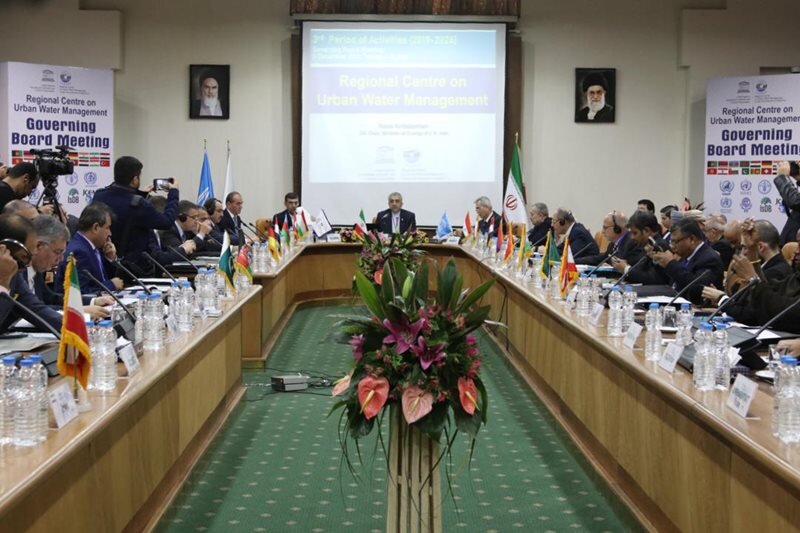RCUWM-Tehran to increase Iran’s role in region’s water projects

TEHRAN – Iranian Energy Minister Reza Ardakanian said the UNESCO Regional Centre on Urban Water Management (RCUWM-Tehran) has offered new solutions for increasing the role of regional companies, including Iranian firms, in water and energy projects.
Speaking to the press on the sidelines of the 10th meeting of the UNESCO Regional Centre on Urban Water Management (RCUWM)’s governing board in Tehran, Ardakanian said the RCUWM regional center in Tehran was established as a hub for cooperation among the countries of the region.
“It has been largely welcomed as we are in an arid region which has been plagued by wars in recent years. Wars that have caused extensive damage to the infrastructure of some countries in the region,” he said.
“Of course, transferring knowledge and experience from other parts of the world and attracting investment are also on our agenda, and we have started various programs with the goal of capacity building and transferring experiences,” he added.
He further noted that RCUWM-Tehran has been inviting other countries, international organizations and even countries outside the region that are interested in helping in this area, adding “Many countries responded positively and participated in the 10th RCUWM meeting; including Syria, Tajikistan, Oman, Iraq, Armenia, Egypt, India, Afghanistan, Bangladesh, Switzerland, and Germany.”
"World Health Organization (WHO), United Nations Environment Program (UNEP), The International Development Bank and Japan's Middle East Partnership Development Center also attended the gathering," he said.
RCUWM has been established under the auspices of UNESCO since 2002 in Tehran-Iran. The agreement between the government of the Islamic Republic of Iran and UNESCO regarding RCUWM has been recently renewed, signed and exchanged for its third period of activities as for 2018-2023.
RCUWM is guided and overseen by its Governing Board (GB) as the most important decision making constituent at the highest level according to the agreement. The Centre’s GB member states were ministers from Iran (Chair), Afghanistan, Armenia, Bahrain, Bangladesh, Egypt, Germany, India, Iraq, Kuwait, Lebanon, Oman, Pakistan, Syria, Tajikistan, and Yemen as well as UNESCO Director-General during the period of 2002-2017.
EF/MA
Leave a Comment